Cycle lanes bring more revenue to local businesses than car parking spaces – so why do so many businesses think they don’t?
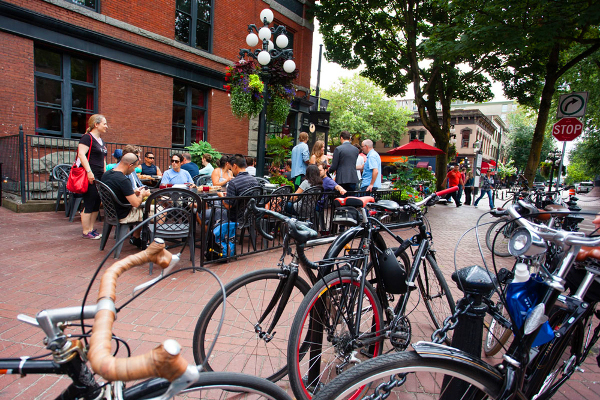
Here’s the story – Enfield borough has received £30 million in funding from Transport for London to install dedicated cycle lanes on some of its main roads, removing on-street parking, adding zebra crossings and trees.
This couldn’t happen to a better borough. Around ten percent of people cycle to work in Hackney, for example – but it’s less than one percent in Enfield – almost definitely due to congested, dangerous trunk roads everywhere. However, some local businesses are up in arms, claiming that the reduction in on-street parking will hurt their business.
Are they right? We’ll let it go that more parking will be provided within a short walk of the shops who lose on-street parking in front of their premises, meaning that there will be more parking overall – does replacing on-street parking on main roads with cycle lanes reduce income for shops? Data from similar schemes all over the world seem to indicate that it doesn’t.
This study showed that cycle lanes reduce vacant properties and increase small business income on routes
Here, it was found that turning the outside traffic lanes to bike lanes in Fort Worth increased restaurant revenues on the routes by 179 percent.
Here are reports from twelve cities around the world that show that very few customers of small shops arrive by car, and bike lanes usually have a postitive effect on local businesses.
And again, more research in North American cities show a big boost for small businesses on roads with cycle lanes
This report shows that spending on bicycle infrastructure gets more people cycling in an area, and cyclists can stop and spend money more easily
Here, local stores next to a protected bike lane saw a 49% increase in sales
This report used sales tax receipts from businesses on a road before and after a cycle land was built – and receipts went up
The reasons seem to be:
-
these streets turn into nicer places to hang out, so more people do
-
cycling is slower, so people can spot shops, stop and buy something, without having to find a parking space
-
cycle lanes and bikes calm traffic, so drivers can have a better look at the shops too
-
cyclists can relax and look around shops without worrying about money running out in parking meters
-
cyclists make lots of short trips to local shops – they don’t cycle to supermarkets for a weekly shop; cyclists spend less per trip, but make more trips
-
hanging out in or outside a cafe with cycle lanes is nicer than sitting next to traffic
-
cyclists are higher per capita spenders than drivers – possibly because cycling is cheaper, and when cycling, people are not spending money on fuel
-
plus businesses who install bike parking racks get (surprise, surprise) a bigger increase in revenue
But in almost all cases, there have been extremely vocal campaigns by businesses on proposed routes opposing the cycle lanes – just as there is now in Enfield. It seems that the correlation of parking spaces and sales figures in people’s minds is a hard one to remove. However, although vocal, opponents are far from a majority – luckily, most people see the benefits of cycle lanes. This project will be good for small businesses and improve Enfield in other ways – for example:
-
safer streets
-
less noise
-
less congestion
-
less pollution
-
fitter people
-
less strain on the NHS due to numbers 1, 4 and 5.
-
more trees (good for wildlife and air quality)
-
less fossil fuel burnt and lower carbon emissions
I’ve never been to Amsterdam, but I have been to Copenhagen – cycled to it in fact, during a cycle tour around Europe. It was like no other city I visited – an absolute joy. It seemed that everyone travelled by bicycle – bikes outnumbered cars several times over and the streets were completely cycle-friendly. Cyclists in London seem to have a reputation as being ‘aggressive’. I don’t know if that’s true, but if it is, it might be because cycling in London is so stressful. I certainly didn’t see any ‘aggressive’ cycling in Copenhagen – just relaxed, happy cyclists of all ages, not worried about being killed in crazy traffic.
If you’d like to see UK cities become more like Copenhagen or the Netherlands (have a look at this), here’s what you can do. Go to the ‘We Support Enfield Mini Holland‘ Facebook group, join and comment. There’s information on there about how to give your opinion to Enfield council – but it has to be done before Friday.
The views expressed in our blog are those of the author and not necessarily lowimpact.org's
1 Comment
-
1Peter Richardson October 6th, 2015
Very well said. I agree with all of this.
Apart from cycle lanes, another factor that can help is reducing speed limits. Green Party county councillor Sarah Lunnon has been very successful in reducing speed limits to 20mph throughout the town of Stroud, Gloucestershire, with lots of support from other parties and the general public. With traffic moving more slowly, the streets are friendlier, safer places… though it does take some time and effort for drivers to adapt to this change, and signage has to be carefully implemented (it could be better in Stroud in some places… drivers need lots of warning and reminding that the speed limit is 20 not 30). I would like speed limits to be reduced further, to 5mph on residential roads, with priority for cyclists and pedestrians, which is how I think the Home Zone streets are which are very common in Holland.




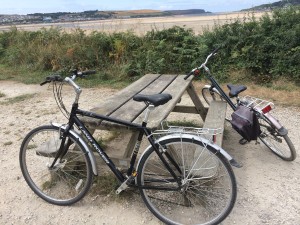 Are holiday/leisure cycle paths like the ‘Camel Trail’ good for the environment?
Are holiday/leisure cycle paths like the ‘Camel Trail’ good for the environment?
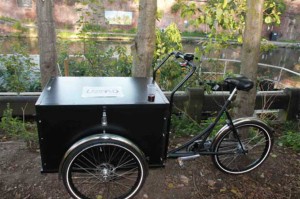 Cargo bikes collecting local food waste for anaerobic digestion and biogas
Cargo bikes collecting local food waste for anaerobic digestion and biogas
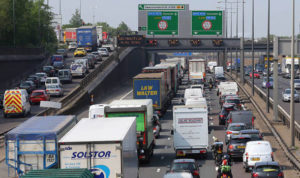 Will we reach ‘peak car’, after which we can begin to reduce the number of cars on the roads?
Will we reach ‘peak car’, after which we can begin to reduce the number of cars on the roads?
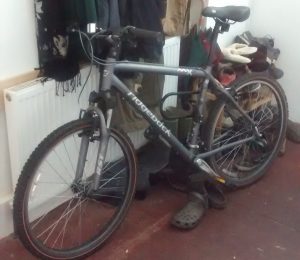 Low-impact & the city 14: getting back on a bike after ten years
Low-impact & the city 14: getting back on a bike after ten years
 Community
Community
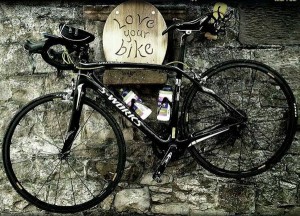 Cycling
Cycling
 Low-impact shopping
Low-impact shopping
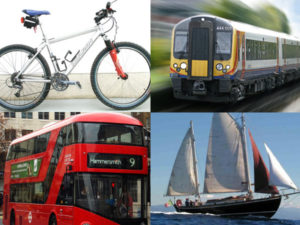 Low-impact transport
Low-impact transport
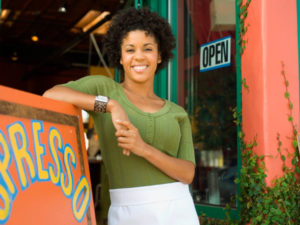 Self-employment
Self-employment


